Please scroll down for English
新聞稿 2020年12月14日
總編輯/港聞版編輯/副刊版編輯/健康版編輯
「聖誕病」致關節及器官出血 血友病會夥藝人佳節送暖
中大專家:近年治療突破性發展 冀患者活出美滿人生
Online version: http://public.seedland.hk/press/HKHS/2012-HKHS_Sharing/
Press release and Photos: Click Here (OneDrive)
Video: Click Here
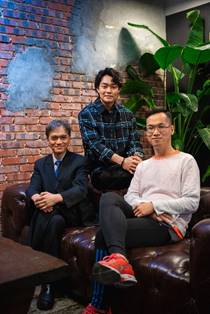

血友病是先天性遺傳病,患者體內因為欠缺凝血因子,受傷出血時不能有效止血,會出現流血不止的情況,或是大幅瘀青。重度患者更有機會在毫無原因之下出現關節及其他重要器官自發性出血,長遠令關節永久受損,影響活動能力,如遇上腦出血的話,更有可能造成長期的頭痛、癲癇、意識不清,甚至危及性命。血友病可分為A型及B型,其中於1951年發現的B型血友病以首位病人Stephen Christmas的名字命名為聖誕病(Christmas Disease)。適逢聖誕佳節,香港血友病會推出由前香港棒球代表隊成員及著名演員胡子彤參與演出,並由樂壇新秀黃進林獻唱宣傳歌曲的最新宣傳短片,呼籲市民大眾關注血友病,為血友病病人送上祝福及支持。
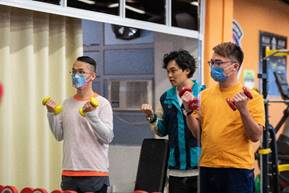

血友病是遺傳疾病,因此只有基因治療才能根治,但基因治療至今仍然處於研究階段,要控制血友病,仍然以傳統替代凝血因子的方式為主,包括透過合成或捐贈者的血漿提取。過去十多年來,香港醫管局一直有提供凝血因子讓患者自行注射,患者只要每星期注射兩至三次,便可令凝血因子維持在一定水平,病情輕微者可以進行較輕巧的運動,而病情嚴重人士則仍然需要把活動減至最低水平,避免受傷流血的機會。香港血友病會成立的目的,旨在支援及扶持血友病病友及其家屬,包括教導病友自我照顧,或是指導家屬如何照顧病人,同時教育大眾認識及了解血友病,為病友爭取更佳治療,令血友病患者可以健康、快樂、獨立及自主地生活。
林漢威主席:在聖誕節突破聖誕病
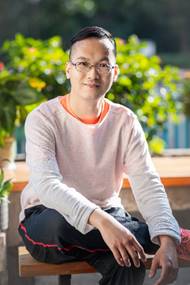 香港血友病會主席林漢威先生是B型血友病即「聖誕病」的重度患者,身體內的第九凝血因子少於1%。小時候接受疫苗注射時,家人發現他的針孔一直腫脹不退,而且家族有血友病病史,經檢驗確診。因為要注射凝血因子,林漢威小時經常為了出入醫院而缺課。他憶述幼年時的聖誕節基本上都因為「聖誕病」而要在醫院裡度過,直至其後可以自行注射,生活質素才開始改善。長大後,聖誕節在他的人生中又添上另一重意義——他與妻子正是在聖誕節當天共諧連理。他說:「當我們知道心儀的場地在聖誕節有空檔便二話不說決定在當天舉行婚禮,在聖誕節結婚亦代表我希望在聖誕節突破這個『聖誕病』。」
香港血友病會主席林漢威先生是B型血友病即「聖誕病」的重度患者,身體內的第九凝血因子少於1%。小時候接受疫苗注射時,家人發現他的針孔一直腫脹不退,而且家族有血友病病史,經檢驗確診。因為要注射凝血因子,林漢威小時經常為了出入醫院而缺課。他憶述幼年時的聖誕節基本上都因為「聖誕病」而要在醫院裡度過,直至其後可以自行注射,生活質素才開始改善。長大後,聖誕節在他的人生中又添上另一重意義——他與妻子正是在聖誕節當天共諧連理。他說:「當我們知道心儀的場地在聖誕節有空檔便二話不說決定在當天舉行婚禮,在聖誕節結婚亦代表我希望在聖誕節突破這個『聖誕病』。」
林漢威現為兩女之父,當初促使他成立香港血友病會的主因,是眼見很多小朋友仍然因為缺乏藥物而不能正常生活。他表示:「當年在兩位醫生倡導下,我與其他病友及家屬合作成立香港血友病會。血友病是終身頑疾,血友病會無法改變病人患病的事實,但過去十四年間,我們一直努力擔當同路人的角色,舉辦不同形式的活動,積極推行教育工作,除了為病友及家屬提供協助之外,更希望讓更多市民大眾了解血友病,令病友在日常生活中獲得更多理解及支援,更容易融入社會。」
林瀚昌病友:足不出戶
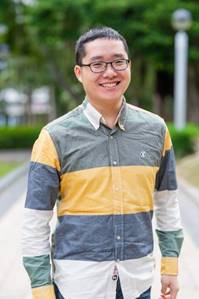 A型血友病重型患者林瀚昌的經歷反映血友病病人及家屬在生活上面對的種種困難。阿昌的家人在他小時候注意到他的皮膚會無故瘀黑,幾經轉折才發現他患有血友病。由於當時家境欠佳,再加上社會對血友病認知不足,醫療環境亦不及現今先進,他只能間中注射質素參差的藥物,注射後更會渾身痕癢,家人在情急之下亦用上不少「偏方」。外表看來,阿昌與一般人無異,問到他平常有沒有做運動,他舉起一個零字手勢,然後解釋:「我做運動的次數基本上是零,小時候完全沒有上過體育課,因為與學校溝通後認為還是不要上體育課較好,其他同學上體育課,我就永遠坐在一旁作旁觀者。」阿昌是血友病重型患者,即使輕微碰撞亦會導致大規模出血,除了運動之外,很多社交活動亦不能參與,他形容自己以往是「足不出戶」。如今醫藥進步,病人可以自行預防性注射凝血因子,生活才得以改善。
A型血友病重型患者林瀚昌的經歷反映血友病病人及家屬在生活上面對的種種困難。阿昌的家人在他小時候注意到他的皮膚會無故瘀黑,幾經轉折才發現他患有血友病。由於當時家境欠佳,再加上社會對血友病認知不足,醫療環境亦不及現今先進,他只能間中注射質素參差的藥物,注射後更會渾身痕癢,家人在情急之下亦用上不少「偏方」。外表看來,阿昌與一般人無異,問到他平常有沒有做運動,他舉起一個零字手勢,然後解釋:「我做運動的次數基本上是零,小時候完全沒有上過體育課,因為與學校溝通後認為還是不要上體育課較好,其他同學上體育課,我就永遠坐在一旁作旁觀者。」阿昌是血友病重型患者,即使輕微碰撞亦會導致大規模出血,除了運動之外,很多社交活動亦不能參與,他形容自己以往是「足不出戶」。如今醫藥進步,病人可以自行預防性注射凝血因子,生活才得以改善。
因為血友病,阿昌在求學及工作上皆遇上不少波折,加入香港血友病會成為骨幹成員之一,是希望社會大眾可以更進一步理解血友病:「一般人對血友病的認識最多只停留在流血不止、容易出血,他們不會理解出血背後帶來的問題,面對我們甚至會不知所措。我希望大眾可以多點了解血友病,明白血友病的成因及如何護理,理解病人不能參與某些活動,不能做到某些動作,多一點包容,多一點關心。」
王紹明醫生:醫學科技發展改善患者的治療及生活質素
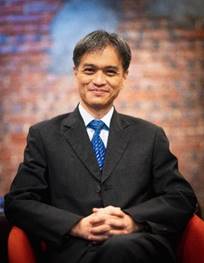 治療血友病逾20年並一直致力協助血友病患者的中文大學內科及藥物治療學系名譽臨床副教授王紹明醫生表示:「現時全球約有40萬名血友病患者,而香港則有約222名患者。血友病是通過X染色體遺傳的疾病,因此主要影響男性,女性通常為基因攜帶者,只有部分人會出現病徵。不少血友病病人一出生便發病,他們的成長過程並不容易。我最希望市民大眾能夠理解和接受血友病,例如病人不時要注射藥物、小朋友在上體育課時要更為謹慎、運動時要避免碰撞等。更加重要的是明白血友病並非傳染病,跟病人同枱用膳或一起日常生活並不會因此而受到感染。在適當治療下,血友病患者其實可以與一般人一樣過正常生活,隨着科技發展,血友病對患者的影響亦愈來愈少。我樂見近期治療方面有突破性進展,例如長效凝血因子及皮下注射藥物,可以顯著改善患者的治療及生活質素。醫學科技發展對他們人生的影響令我印象深刻,我希望未來如果基因治療成功,可以更進一步改善患者的生活,為他們帶來更美好的前景。」
治療血友病逾20年並一直致力協助血友病患者的中文大學內科及藥物治療學系名譽臨床副教授王紹明醫生表示:「現時全球約有40萬名血友病患者,而香港則有約222名患者。血友病是通過X染色體遺傳的疾病,因此主要影響男性,女性通常為基因攜帶者,只有部分人會出現病徵。不少血友病病人一出生便發病,他們的成長過程並不容易。我最希望市民大眾能夠理解和接受血友病,例如病人不時要注射藥物、小朋友在上體育課時要更為謹慎、運動時要避免碰撞等。更加重要的是明白血友病並非傳染病,跟病人同枱用膳或一起日常生活並不會因此而受到感染。在適當治療下,血友病患者其實可以與一般人一樣過正常生活,隨着科技發展,血友病對患者的影響亦愈來愈少。我樂見近期治療方面有突破性進展,例如長效凝血因子及皮下注射藥物,可以顯著改善患者的治療及生活質素。醫學科技發展對他們人生的影響令我印象深刻,我希望未來如果基因治療成功,可以更進一步改善患者的生活,為他們帶來更美好的前景。」
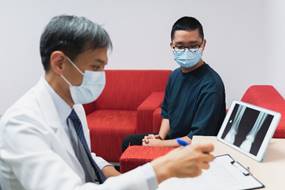
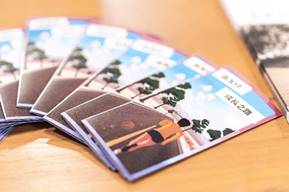
關於香港血友病會
香港血友病會在威爾斯親王醫院兒科醫生成明光醫生及瑪嘉烈醫院兒科醫生凌紹祥醫生的倡導下於2006年成立,旨在支援及扶持血友病病友及其家屬、教導病友自我照顧或指導家屬如何照顧病友,與此同時,教育大眾認識及了解血友病,以及為病友爭取更佳治療,令血友病患者可以健康、快樂、獨立及自主地生活。
查詢詳情或索取照片,歡迎致電+852 9534 0813或電郵至 helena@seedland.hk 與Ms Helena Hui或致電+852 9197 3051或電郵至 chanel@seedland.hk 與Ms Chanel Leung聯絡。
發稿:香港血友病會
代行:Seedland International Limited
電話:+852 3583 3100 傳真:+852 3583 1331
網站:www.seedland.hk 電郵:info@seedland.hk
Press Release 14th December 2020
As Christmas approaches, Hong Kong Haemophilia Society joins hands with celebrities to call upon understanding and support for patients of the “Christmas Disease”, while expert of the Chinese University of Hong Kong expresses positive views towards the recent medical breakthroughs
Online version: http://public.seedland.hk/press/HKHS/2012-HKHS_Sharing/
Press release and Photos: Click Here (OneDrive)
Video: Click Here
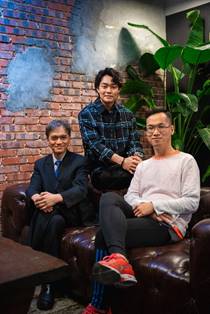

Haemophilia is an inherited genetic disorder. Lacking the clotting factor in their blood, haemophiliacs’ body would not be able to stop bleeding once they are hurt, which would in turn cause haemorrhage or large bruises. Severe haemophiliacs could develop spontaneous haemorrhage in joints and vital organs that may lead to permanent joint damage, hindering their ability to move. In case of cerebral haemorrhage, victims could develop long-term headache, epilepsy, conscious disturbances or even life-threatening conditions. There are two main types of haemophilia: haemophilia A and haemophilia B. The latter, which was first discovered in 1951, is also known by the eponym Christmas Disease, named after Stephen Christmas, the first patient diagnosed with haemophilia B. With Christmas around the corner, the Hong Kong Haemophilia Society is presenting a new promotional video, featuring former Hong Kong Baseball Team member and renowned actor Mr. Tony Wu, with a theme song performed by talented vocalist Michael Wong, calling upon the public to learn more about haemophilia and offer their blessing and support to the patients.
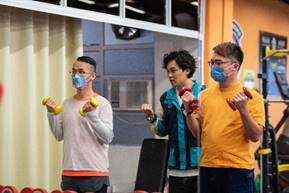
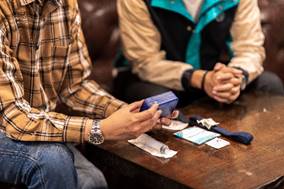
Haemophilia, a genetic disorder, can only be radically cured with gene therapy, which is currently only in the research stage. The disease is now treated and controlled primarily by replacing the missing blood clotting factors that are isolated from human blood serum or recombinant. In the past decade, Hong Kong Hospital Authority has provided the factors for patient to carry out self-injection. With two or three injections every week, the factors can be maintained at a certain level. Mild haemophiliacs can do light sports while patients with severe symptoms have to keep their activities to a minimum to avoid getting hurt or bleed. Hong Kong Haemophilia Society was established to provide support and assistance to haemophiliacs and their family. By educating its members to take care of themselves or their family to attend to the patients’ needs, as well as cultivating the public to get to know and understand haemophilia, the Society fights for better treatment for its members, helping its members live a more healthy, happy, independent and autonomous life.
Mr. Henry Lam, Chairman of Hong Kong Haemophilia Society – to break through my Christmas Disease on Christmas Day
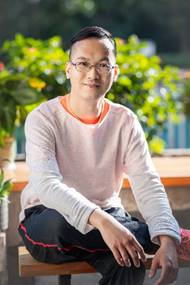 With less than 1% of factor IX in his body, Mr. Henry Lam, Chairman of the Hong Kong Haemophilia Society, is a victim of haemophilia B, i.e. the Christmas Disease. Henry was diagnosed at a young age after his family discovered that the wound on his regular vaccination swelled for a long time, in addition to a history of the disease in his family. Henry missed many of his school days when he was young because he had to go to the hospital frequently for injection. His recollection of Christmas as a child was mostly related to hospitals because of the Christmas Disease. It was only until self-injection was introduced that his quality of life started to improve. Christmas becomes even more meaningful to Henry when he and his wife decided to get married on this festive day. He shared, “We were notified that the wedding venue was available on Christmas Day, and we gave no second thought to set the date. Planning my big day on Christmas symbolised my aspiration to have a breakthrough for the Christmas Disease that I am carrying on Christmas day.”
With less than 1% of factor IX in his body, Mr. Henry Lam, Chairman of the Hong Kong Haemophilia Society, is a victim of haemophilia B, i.e. the Christmas Disease. Henry was diagnosed at a young age after his family discovered that the wound on his regular vaccination swelled for a long time, in addition to a history of the disease in his family. Henry missed many of his school days when he was young because he had to go to the hospital frequently for injection. His recollection of Christmas as a child was mostly related to hospitals because of the Christmas Disease. It was only until self-injection was introduced that his quality of life started to improve. Christmas becomes even more meaningful to Henry when he and his wife decided to get married on this festive day. He shared, “We were notified that the wedding venue was available on Christmas Day, and we gave no second thought to set the date. Planning my big day on Christmas symbolised my aspiration to have a breakthrough for the Christmas Disease that I am carrying on Christmas day.”
A father of two lovely daughters, Henry established the Hong Kong Haemophilia Society driven by his concern that many children suffering from haemophilia were still unable to live a normal life because of the lack of proper medication. He said, “Initiated by two doctors, I joined hands with a number of fellow patients to form the Hong Kong Haemophilia Society. Haemophilia is a life-long disease, the Society cannot alter the fact that we fell victim to such disease, but in the past 14 years, we have played the role of a reliable companion to one another, and by holding different events, we have proactively promoted the awareness for haemophilia. Apart from providing assistance to our members and their family, we hope that the public can learn more about haemophilia, thus more people will render care, acceptance and support to haemophiliacs in daily life.”
Mr. Hunter Lam, member of Hong Kong Haemophilia Society – a stay-at-home child
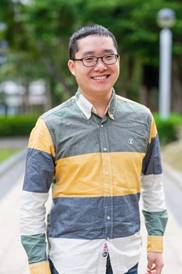 A severe haemophilia A patient, the experience of Hunter Lam reflects accurately the difficulties faced by haemophiliacs and their family. Hunter’s family discovered that there were spontaneous bruises on his skin when he was little, and only with twists and turns, was he eventually diagnosed with haemophilia. Due to financial limitation, insufficient knowledge of the disease and the less-than-ideal medical development back then, Hunter could only have injection intermittently with medication of questionable quality. He would suffer from allergic reaction of itchiness all over his body after injections and in desperation, his family even turned to folk remedies. From the appearance, nothing is unordinary about Hunter. When he was asked if he likes to do sports, he signed an “O” and explained, “My experience of doing sports is zero. I have never had PE lessons when I was a child because the school thought that it would be best if I did not take PE lessons. So, whenever my classmates were jumping up and down, I was always the spectator on the sides.” A minor bump could lead to major haemorrhage for severe haemophiliacs like Hunter. Describing himself as a stay-at-home child, there were numerous social events that he could not attend besides sports. With medical advancement, patients can now carry out self-injection as a preventive measure, which allows them to live a relatively normal life.
A severe haemophilia A patient, the experience of Hunter Lam reflects accurately the difficulties faced by haemophiliacs and their family. Hunter’s family discovered that there were spontaneous bruises on his skin when he was little, and only with twists and turns, was he eventually diagnosed with haemophilia. Due to financial limitation, insufficient knowledge of the disease and the less-than-ideal medical development back then, Hunter could only have injection intermittently with medication of questionable quality. He would suffer from allergic reaction of itchiness all over his body after injections and in desperation, his family even turned to folk remedies. From the appearance, nothing is unordinary about Hunter. When he was asked if he likes to do sports, he signed an “O” and explained, “My experience of doing sports is zero. I have never had PE lessons when I was a child because the school thought that it would be best if I did not take PE lessons. So, whenever my classmates were jumping up and down, I was always the spectator on the sides.” A minor bump could lead to major haemorrhage for severe haemophiliacs like Hunter. Describing himself as a stay-at-home child, there were numerous social events that he could not attend besides sports. With medical advancement, patients can now carry out self-injection as a preventive measure, which allows them to live a relatively normal life.
As a haemophilia patient, Hunter was met with many obstacles in his studying and career. By participating in the Hong Kong Haemophilia Society as one of the backbone members, he hopes that the public can take a step further to understand haemophilia, “To most people’s understanding, haemophilia is all about non-stop bleeding and haemorrhage, but what they don’t get is the implications of such symptoms. They are at a loss when they meet a haemophiliac. I hope that the public will take a step to get to know the disease, understand the cause and attendance, and be considerate if we cannot participate in some activities or perform some actions. A little more care and consideration would go a mile.”
Dr. Raymond S.M. Wong – Advancement in medical technology ameliorates the experience in treatment and living standard of haemophilia patient
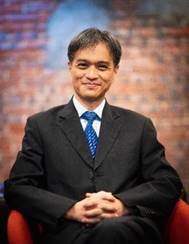 Helping patients fight haemophilia for more than two decades, Dr. Raymond S.M. Wong, Clinical Associate Professor (Honorary), Department of Medicine & Therapeutics, The Chinese University of Hong Kong, said, “It is estimated that there are about 400,000 haemophilia patients worldwide and about 222 of them reside in Hong Kong. Typically inherited from one’s parent through an X chromosome, the disease mostly affects male while female would be a gene carrier, with only a few of them having a show of symptoms. Many haemophiliacs showed symptoms once they were born, hence hampering their development when they were growing up. My hope is that the public would understand and accept haemophilia, for instance, patients have to take injections, children with haemophilia have to be extra cautious in PE lessons and patients have to avoid collisions in sports. More importantly, the public should understand that haemophilia is not contagious; no one will be infected by sharing a meal or living together with a patient. With proper treatment, haemophiliacs can live a normal life. As technology advances, the influence of the disease to the patient is getting less and less significant. I am delighted to see breakthroughs in haemophilia treatment in recent years including long-acting factors and subcutaneous injection, which greatly improve the treatment and hence patient’s quality of life. I am truly impressed by the changes that development of medical technology has induced on haemophilia patients. If gene therapy were to be successful in the future, I wish the patients could live an even better life and envision a brighter prospect.”
Helping patients fight haemophilia for more than two decades, Dr. Raymond S.M. Wong, Clinical Associate Professor (Honorary), Department of Medicine & Therapeutics, The Chinese University of Hong Kong, said, “It is estimated that there are about 400,000 haemophilia patients worldwide and about 222 of them reside in Hong Kong. Typically inherited from one’s parent through an X chromosome, the disease mostly affects male while female would be a gene carrier, with only a few of them having a show of symptoms. Many haemophiliacs showed symptoms once they were born, hence hampering their development when they were growing up. My hope is that the public would understand and accept haemophilia, for instance, patients have to take injections, children with haemophilia have to be extra cautious in PE lessons and patients have to avoid collisions in sports. More importantly, the public should understand that haemophilia is not contagious; no one will be infected by sharing a meal or living together with a patient. With proper treatment, haemophiliacs can live a normal life. As technology advances, the influence of the disease to the patient is getting less and less significant. I am delighted to see breakthroughs in haemophilia treatment in recent years including long-acting factors and subcutaneous injection, which greatly improve the treatment and hence patient’s quality of life. I am truly impressed by the changes that development of medical technology has induced on haemophilia patients. If gene therapy were to be successful in the future, I wish the patients could live an even better life and envision a brighter prospect.”
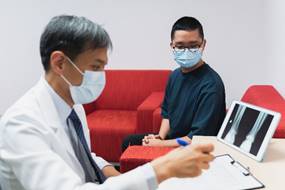
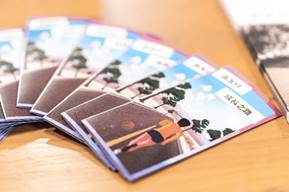
About Hong Kong Haemophilia Society
Initiated by paediatricians Dr. Shing Ming Kong of Prince of Wales Hospital and Dr. Ling Siu Cheung of Princess Margaret Hospital, Hong Kong Haemophilia Society was established in 2006. The Society aims to provide support and assistance to haemophiliacs and their family. By educating its members to take care of themselves or their family to attend to the patients’ needs, as well as cultivating the public to get to know and understand haemophilia, the Society fights for better treatment for its members, helping its members live a more healthy, happy, independent and autonomous life.
Released by Seedland International Limited
On behalf of Hong Kong Haemophilia Society
Media enquiries:
Tel: +852 3583 3100 Fax: +852 3583 1331
Website: www.seedland.hk E-mail: info@seedland.hk
Contacts:
Ms Helena Hui (+852 9534 0813 / helena@seedland.hk )
Ms Chanel Leung (+852 6698 2252 / chanel@seedland.hk )